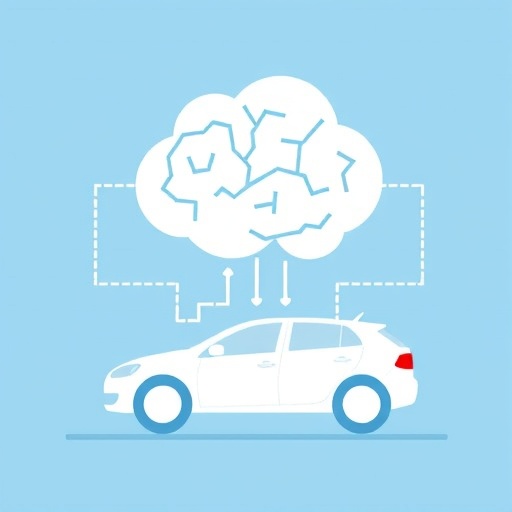Southwest Research Institute (SwRI) has made significant strides in the realm of diesel vehicle emissions control by developing an innovative method that harnesses the power of machine learning. This advancement has the potential to radically transform how heavy-duty diesel truck emissions control systems are calibrated, reducing the time required for such processes from weeks to a mere two hours. This leap in efficiency is particularly timely as new regulatory standards from the U.S. Environmental Protection Agency and the California Air Resources Board loom on the horizon, set to go into effect in 2027.
Traditionally, calibrating selective catalytic reduction (SCR) systems has been a manual, labor-intensive process. It often demands extensive testing and meticulous adjustments, taking as long as six weeks to complete. However, the team at SwRI has devised a method leveraging advanced modeling and automated optimization techniques. Venkata Chundru, a senior research engineer in SwRI’s Advanced Algorithms Section, articulates the transformative impact of this new approach, highlighting its potential to enhance both the efficiency and effectiveness of SCR systems while ensuring compliance with impending emissions standards.
The challenge of nitrous oxide (NOx) emissions control is emerging as a pressing issue for the automotive industry. With stringent new regulations on the horizon, traditional methods of manual calibration are proving increasingly inadequate. SwRI is stepping into this breach with a groundbreaking approach that aims not only to streamline the calibration process but also to enhance the real-world performance of these emissions control systems. By integrating machine learning, SwRI is setting a precedent that could redefine industry standards.
The operation of SCR systems typically involves an ammonia-based solution, often urea-based diesel exhaust fluid, which is injected into the exhaust stream. As this dosed exhaust interacts with a catalyst, a chemical reaction occurs, transforming harmful NOx emissions into benign nitrogen and water. The challenge lies in optimizing this process to maximize emissions reduction and system efficiency. SwRI’s approach utilizes a physics-informed neural network machine learning model, effectively melding empirical data with theoretical physics to achieve faster and more accurate calibration outcomes.
By simulating the dynamics of an active SCR system, researchers could refine the control algorithms for urea dosing, leading to a systematic decrease in both NOx and ammonia emissions. This capability not only ensures compliance with emerging regulations but also paves the way for advanced optimizations that enhance overall system performance. The automation of these calibration processes represents a significant paradigm shift, allowing for a level of precision and responsiveness that traditional methods cannot match.
The implications of this research extend beyond mere compliance; they signal a future where heavy-duty applications can be optimized with unprecedented efficiency. The solution developed by SwRI holds the promise of being scalable and cost-effective, ensuring that industries reliant on heavy-duty diesel applications can adapt seamlessly to ongoing regulatory changes. Moreover, the investment in such innovative methodologies underscores a dedication to not just meeting but exceeding industry standards, setting a high bar for competitors.
Alongside its substantial technical advancements, the project has benefited from SwRI’s commitment to internal research and development. The institute has allocated significant resources to foster innovation, as exemplified by the $11 million investment in 2024 aimed at expanding its technological capabilities and solidifying its status as a leader in scientific research. This funding not only supports current projects but also encourages perpetual learning and growth among its engineers and researchers.
As regulatory agencies continue to tighten controls on vehicle emissions, the automotive industry faces mounting pressures to innovate. The work conducted by SwRI serves as a beacon for what the future of emissions control could look like. By establishing automated calibration methodologies, the organization is not only tackling present challenges but also preparing for the complex landscape of technological advancements that lie ahead.
Furthermore, the ramifications of SwRI’s findings reach the broader community, helping to underscore the significance of machine learning in the field of automotive engineering. As issues of air quality and environmental preservation become increasingly pressing, leveraging advanced technologies such as machine learning will be crucial to developing sustainable solutions in vehicle emissions control. The potential for machine learning algorithms to analyze and optimize complex systems represents a remarkable advancement in engineering that could reshape not only the automotive sector but numerous industries that rely on emissions reduction technologies.
In conclusion, Southwest Research Institute’s pioneering efforts in automating SCR systems calibration using machine learning illuminate a promising path forward for the automotive industry amidst tightening emissions regulations. As more companies look to adopt similar approaches, the potential for reduced emissions and improved compliance presents an exciting frontier. With the right tools and techniques, the future of heavy-duty diesel engines can be both efficient and environmentally responsible, aligning technological advancement with the broader goal of sustainable practices in transportation.
Subject of Research: Automation of Diesel Emissions Control Calibration
Article Title: Revolutionizing Diesel Emissions Control: Machine Learning at Southwest Research Institute
News Publication Date: November 12, 2025
Web References: https://www.swri.org/markets/automotive-transportation/automotive/emissions
References: None
Image Credits: Credit: Southwest Research Institute
Keywords
- Automotive engineering
- Diesel automobiles
- Diesel engines
- Machine learning
- Automobile engines




